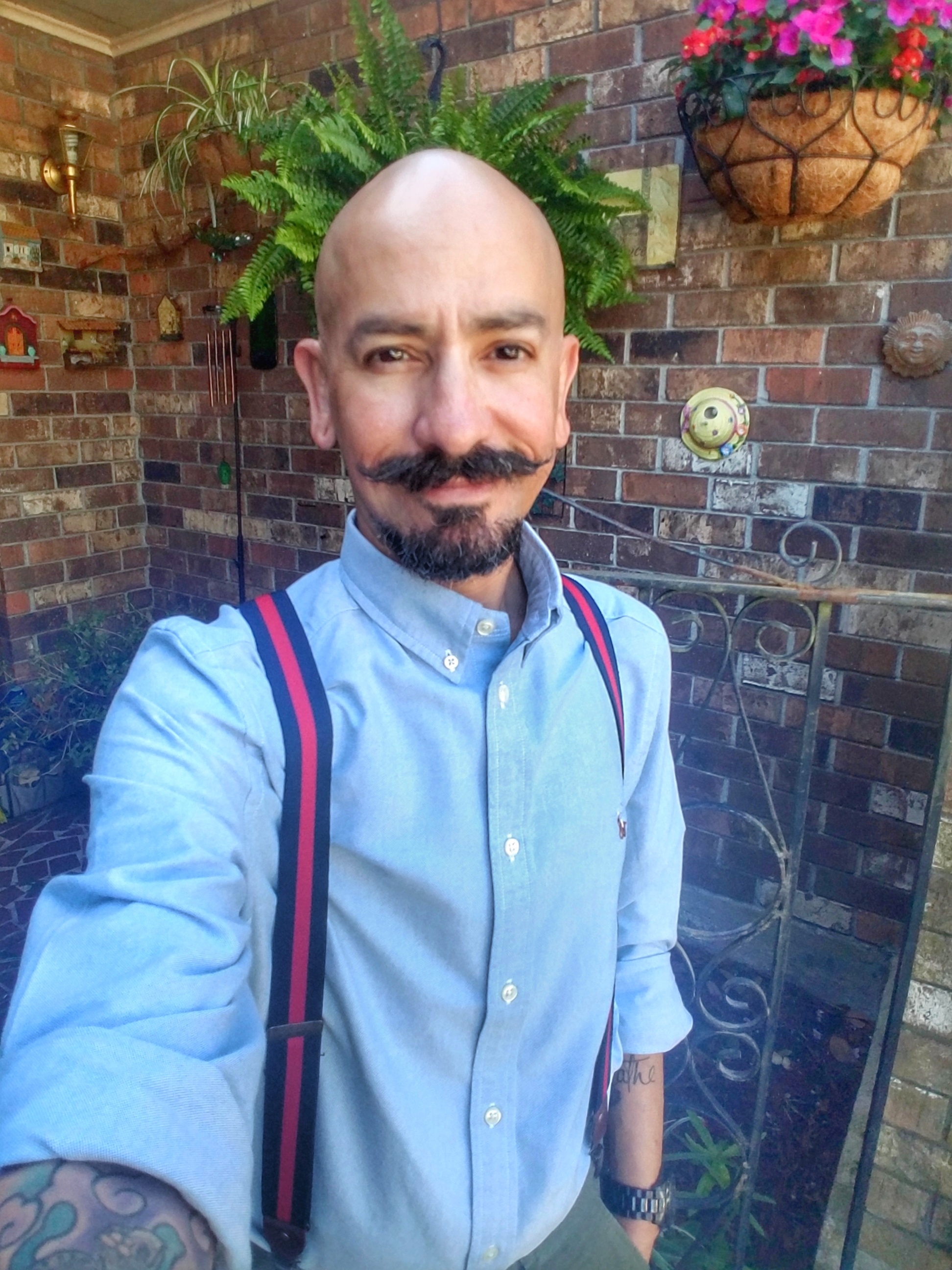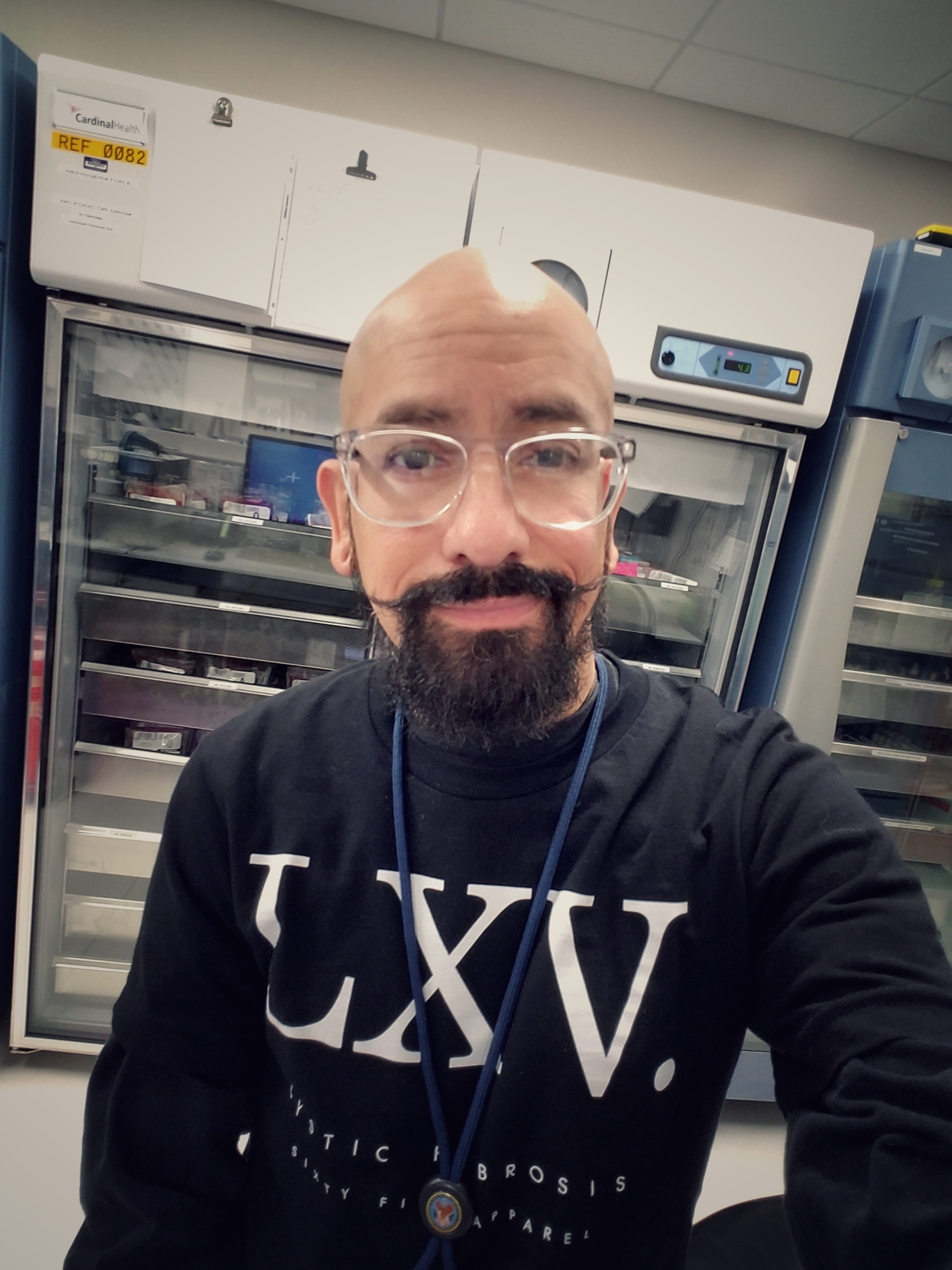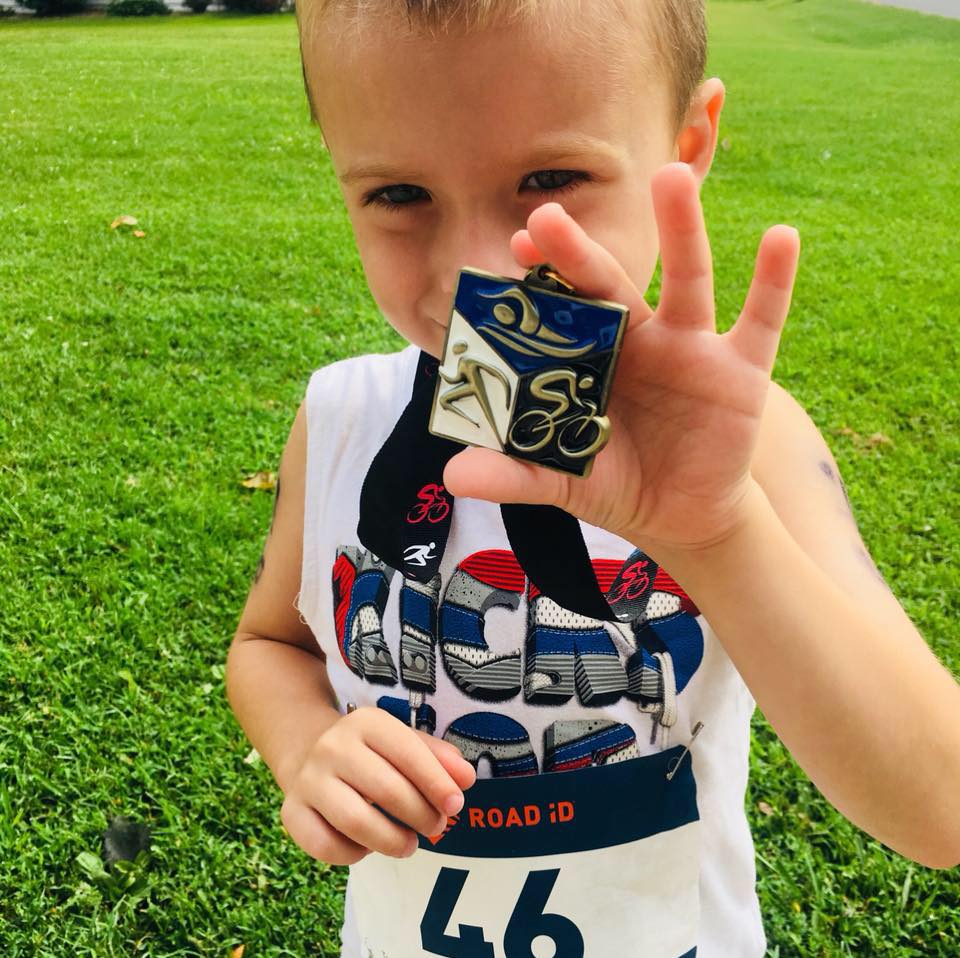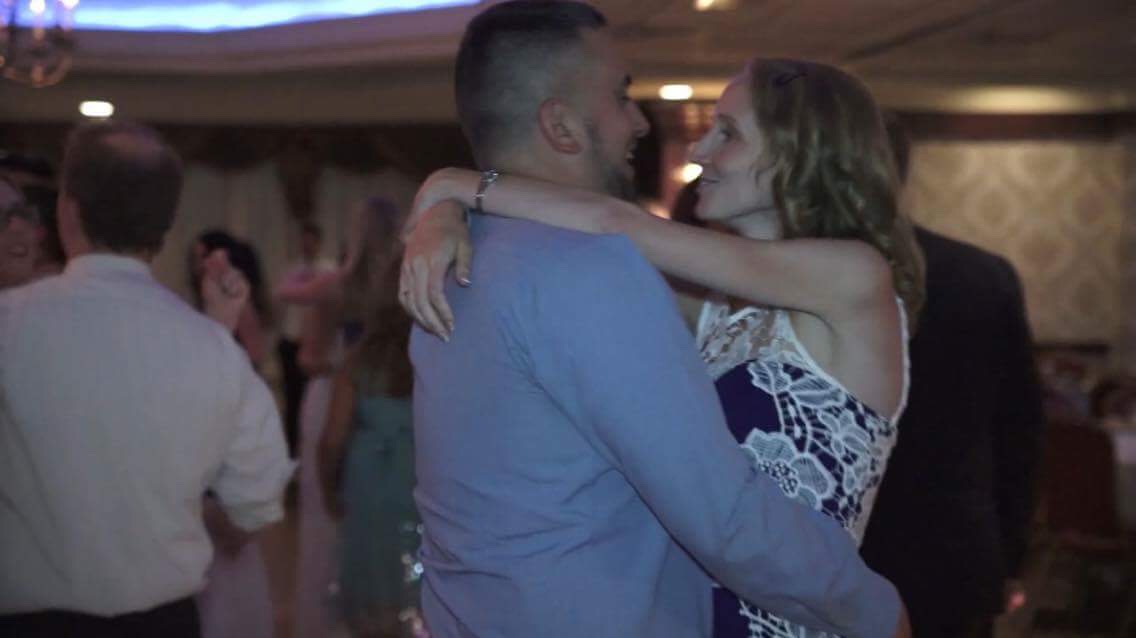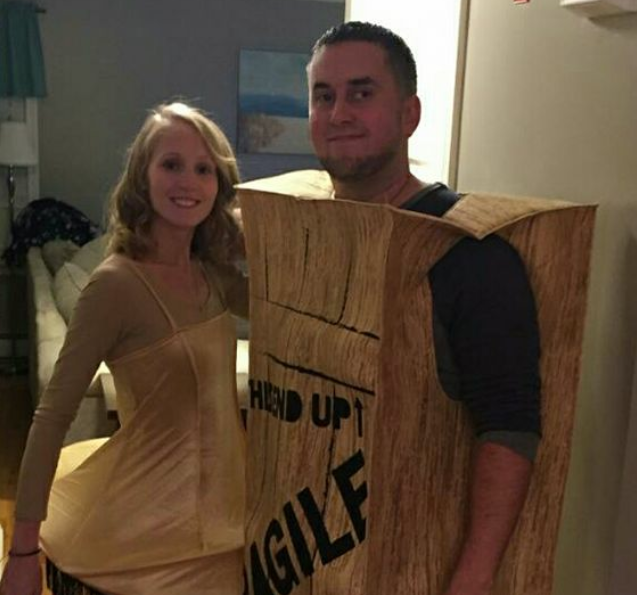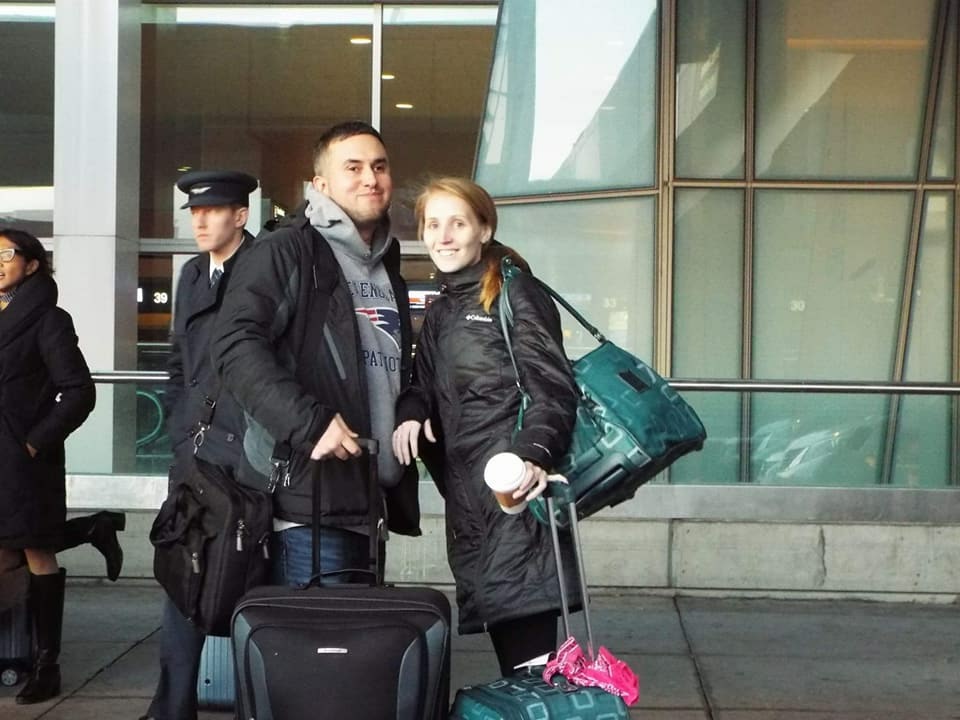I lost my fiancé Ashley “Bea” Briggs due to complications from Cystic Fibrosis a little over a year ago, in early 2017. We met early in the summer of 2015 and fell in love with each other pretty quickly. The next year, we discussed moving in together as the next step in our relationship. It was then that I learned she had Cystic Fibrosis. I had suspected she had some health condition long before, as she coughed frequently and had difficulty with certain physical activities that tax one’s breathing, such as hiking, but I never suspected Ashley had CF because I didn’t know what it was. Even knowing what I know about it now, I still find that CF doesn’t get discussed as often as other conditions despite the fact that it is a life-threatening, progressive disease.
Ashley did not let CF define her nor rule her life; she would only tell people she had CF when she felt comfortable. Even many of her lifelong friends were not aware that she had CF. After she told me, I realized how difficult it was for her to come out and tell me about it. She knew that I would not care in the sense that it would change any of my feelings for her or our relationship, but she of course realized that with a big step like moving in together, that it was important I know. From there, the only thing that changed was that I became the partner of someone with CF.
We moved in together in September of 2016, got engaged in November of that year, began looking at forever homes, and even discussed the possibility of having a baby someday once we were married. During this time from when she told me she had CF to when she eventually passed away, I learned as much about CF as I possibly could and Ashley began to open up to me about it. She realized that we were a team and I would be by her side always, no matter what. I tried not to push her on when it came to her health, or ask too many questions, because of how healthy she always seemed to be and how healthy she had typically been throughout her life living with CF. So, I took my cues on how she was doing from her; if she said she was doing okay, I accepted that because I still did not know enough about CF, or enough about living with someone with CF, to know or deal with it any better than I did or think that I could know more about her condition than she did. I just continued to educate myself about CF as much as I could, and I asked questions whenever something came up, and let her talk to me whenever she felt comfortable.
However, even with the limited knowledge of CF that I had at that point, I could see something was not right in the couple of months before she ended up in the hospital due to a bad case of what we thought was pneumonia at the time. She was getting more infections, losing weight, and having a harder time doing the things she was accustomed to, like walking up the stairs for example. During the last month of her life especially, her struggle had become a topic of daily conversation. Her breathing became more labored and I was getting the sense from her that something just wasn’t quite “right”, and that this time it was more than just “I’m ok”. In the moment though, I always thought she was going to be fine and we’d get through it because we had had some hiccups before and she always bounced back. I just don’t think she truly knew how sick she was until she got to the hospital. When she was admitted to the hospital in late January of 2017, we went in thinking we’d go and get her on IV’s and anti-biotics and we’d nip this latest infection in the bud. Unfortunately, her health and breathing declined rapidly and within just a couple of days she went to being on 24/7 oxygen, to ultimately being put on a ventilator. From there it was a rollercoaster of ups and downs and we thought we had turned a corner, but unfortunately, the infection wouldn’t let go. After a month-long fight in the intensive care unit (ICU), Ashley passed away three weeks shy of her 30th birthday. It felt like we went from lying on the couch watching TV together to her funeral in the blink of an eye. I was devastated, to put it lightly.
That month in the ICU was the most difficult time of my life, and the year since she passed was not any easier. To be frank, it’s hard to think about it now and how I’ve made it this far. But, like the old saying goes, time does help to heal. Thankfully, my friends and family, including Ashley’s family, have been a great support. I also saw a counselor for the first few months after the loss and joined — and actively engaged with — numerous online groups geared toward CF and spousal loss in general. I also began to exercise 5 days a week and hike, as it really helped to clear my mind and make me feel like I was accomplishing something. I also signed up for a lot of 5K’s in and around the New England area, as Ashley would do these often when she was healthy. The feeling I got after exercise was incredibly fulfilling and so I’ve continued doing them even now. All of this was incredibly helpful in dealing with the loss, and the grief.
Lastly, I also engaged with the Cystic Fibrosis Foundation and its local Massachusetts / Rhode Island chapter, and volunteered at many events. I enjoyed meeting others who have been affected by this disease and who are devoting their time to helping to find a cure. Getting – and staying – involved in the Cystic Fibrosis community was very important to me after Ashley’s passing. I learned that people with CF have to deal with a lot of challenges on a daily basis, and Ashley’s perseverance and zest for life was incredibly inspiring. It sparked something in me to help and do more that I didn’t know was there. This lead to me, along with Ashley’s family, starting a non-profit organization called the Breathe for Bea Foundation in her memory while at the same time achieve our mission of helping to make the lives of individuals and their families that are battling this life threatening disease more manageable by providing financial assistance and support, as well scholarships in her memory. We’ve also started providing hospital care packages to CF patients who have been admitted into the hospital for an extended stay.
Unfortunately, there is not a lot out there in terms of support for spouses of those with CF specifically, and I hope that changes someday because it’s clear to me that CF spouses are in a unique situation, and we can benefit from the wisdom and experience of others like us. I hope that others like myself will share their stories so that people in our situation can be more informed and thus can be more involved in the treatment plan of their loved one. I also hope to perhaps be able play a role in helping to establish a support system for spouses of people with Cystic Fibrosis so that we can all come together and help each other.
Ashley was an amazing woman who lived her life on her terms, and not CF’s. She accomplished a great deal in her short time here with us and brought joy and happiness to so many. I wish we would have had the future we planned, but I’m grateful for the time we had, and I’m a better person for having known her. I would not change a thing aside from learning more about CF earlier. It’s the one regret that I do have - that I wish I had asked some of those important health questions sooner and pushed a little more. But like I said, I knew she knew more about CF than I did, and I always thought she’d be ok, so I tried not to press her too much. Perhaps I was also a bit afraid of knowing the answers to certain questions. While it’s a regret I have, it’s also something I’ve learned to let go as unfortunately there is nothing I can do aside from sharing my experiences with others in hopes it can help someone else someday. So, I implore you if you are in a similar situation to be persistent and ask those questions. Ashley was forthcoming with me and had even agreed to allow me to come with her to future doctor’s appointments, but I think she had always felt like CF was her problem and wanted to deal with it herself, which meant refusing to let it govern her life or her relationships. That’s the type of remarkable person she was. As a partner of someone with CF, it’s incredibly important to be involved in the treatment process and to get informed as much as possible. Teamwork is vital to keeping your spouse as healthy as possible.
BIO: Jesse was engaged to a beautiful woman, Ashley Briggs, who passed away in early 2017 due to complications from cystic fibrosis. He lives in Plymouth, Massachusetts. Jesse earned a bachelor of science degree in business administration at Bryant University in Rhode Island, and a master of business administration degree at the University of Massachusetts Boston, majoring in marketing. You can learn more about the foundation her family has created in memory of Ashley, the Breathe for Bea Foundation, which is focused on helping other families like theirs fight Cystic Fibrosis, by visiting https://www.breatheforbea.org/.




